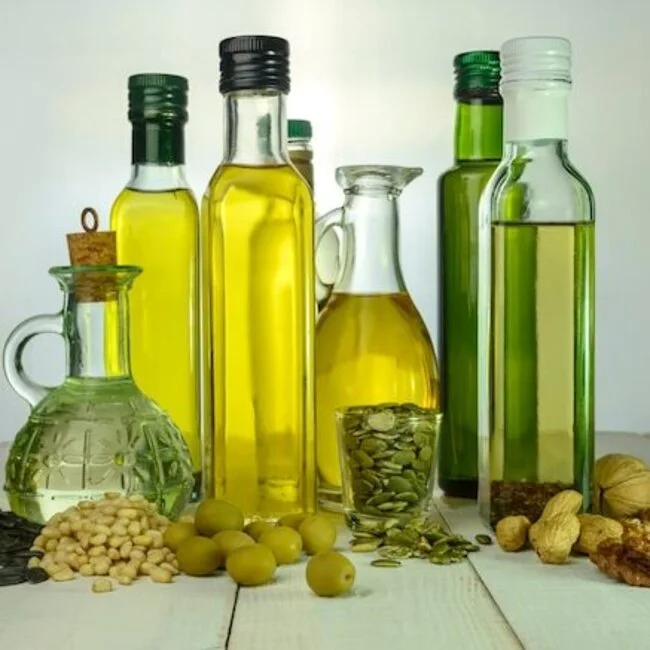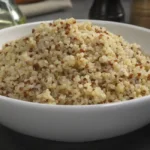Hello, dear readers! Vegetable oils are an integral part of my world full of nutrition and nutritional science. Let’s start at the very beginning. Vegetable oils are derived from plant sources such as olives, canola, corn, and many others. They play a critical role in our cooking and nutrition, and that’s exactly the topic we’re going to break down in detail today.
Vegetable oils are not just ingredients for frying and salad dressings. They are an important source of fatty acids, vitamins and antioxidants. After all, not all fats are the same, and choosing the right vegetable oil can have a positive impact on your health. My tips will help you make sense of the world of vegetable oils, choose the best option for specific dishes, and maintain balance in your diet. Let’s start with the main types of vegetable oils.
Main types of vegetable oils
This is where the amazing journey through the world of vegetable oils begins. For someone who knows their variety, choosing the right oil becomes much easier. Let’s take a look at some of the most popular types:
Olive oil is my personal favorite. It is rich in monounsaturated fats and antioxidants. It is ideal for salad dressings and stewing vegetables.
Rapeseed oil (canola oil) is another healthy choice. With its neutral flavor and high boiling point, it is suitable for many preparations, including frying.
Corn oil is an excellent source of polyunsaturated fatty acids. This oil is often used for frying and cooking popular dishes.
Sunflower oil is another choice high in polyunsaturated fats. It is excellent for cooking a variety of dishes.
Coconut oil is an oil with a delicate coconut flavor, perfect for frying and making desserts.
Walnut Oil – If you want to add a rich nutty flavor to salads or desserts, this oil is your choice.
In the following sections, we will look at rare vegetable oils that can give your dishes unique flavor and health benefits.
Olive oil
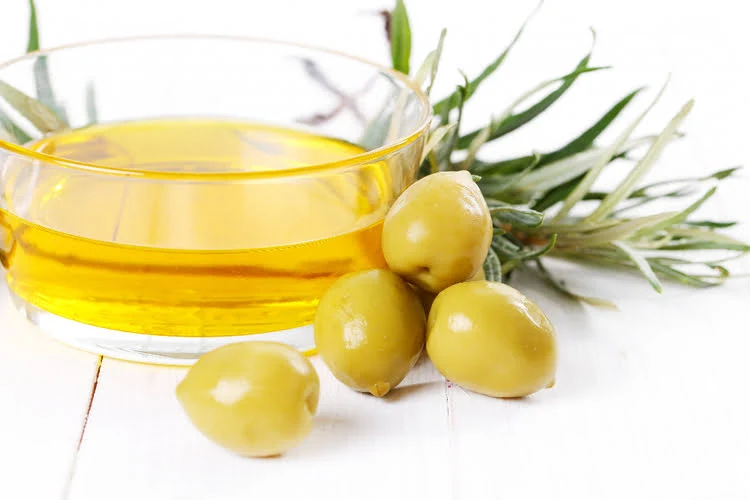
Olive oil, often called “green gold”, is one of the most popular and healthy vegetable oils in the world. It is produced from the fruit of the olive tree and is characterized by its unique flavor and aroma. Olive oil comes in many varieties, including Extra Virgin (the most natural and highest quality), Virgin (slightly less natural), and regular olive oil. Its color can range from green to golden, and it depends on how ripe the olives are.
Olive oil is a true multifunctional product. It can be used in cooking, cosmetology and even for health care. In cooking, it is ideal for making salad dressings, stewing vegetables, frying meat and fish, and baking. It also blends well with various spices and herbs, making it an important ingredient in many dishes. In addition, olive oil is rich in monounsaturated fatty acids, which are good for heart health, antioxidants, vitamin E and other nutrients, making it a great choice for maintaining a healthy lifestyle. Don’t forget about its cosmetic properties as well – it can be used for skin and hair care.
Rapeseed oil (canola oil)

Rapeseed oil, also known as canola oil, is one of the healthiest and most versatile vegetable oils. This oil is made from the seeds of a plant called rapeseed. It has a neutral flavor and a light yellow color. One of its key benefits is its high content of monounsaturated fatty acids, especially oleic acid, as well as omega-3 fatty acids, making it an excellent choice for maintaining heart and vascular health.
Rapeseed oil has many uses in cooking. Its neutral flavor and high boiling point make it suitable for many types of cooking. You can use it for frying, grilling, baking and preparing baked goods. This oil is also ideal for making salad dressings and sauces, as it does not overpower the natural flavor of other ingredients. In addition to culinary purposes, rapeseed oil can be used for skin and hair care due to its moisturizing properties and rich composition of fatty acids.
Corn oil
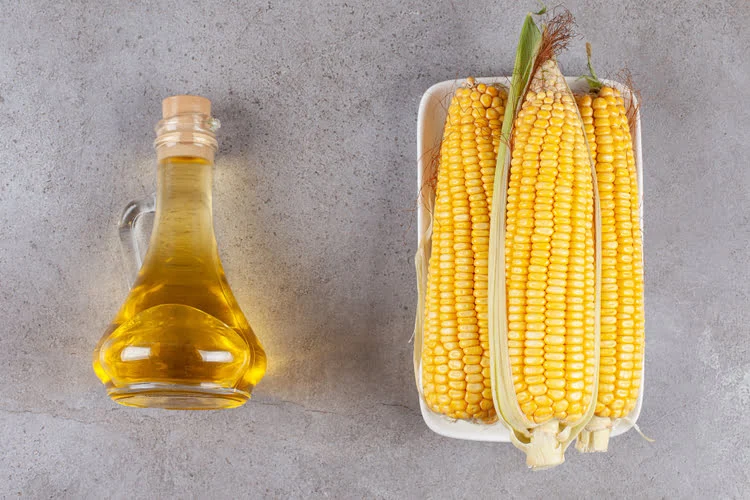
Corn oil is another popular vegetable oil derived from corn seeds. It has a light yellow color and neutral taste. The main feature of corn oil is its high content of polyunsaturated fatty acids such as linoleic acid, making it a valuable source of omega-6 fatty acids and vitamin E. These components help maintain healthy skin and strengthen the immune system.
Corn oil is widely used in cooking due to its high boiling point. It is ideal for frying, grilling and deep frying as it retains its qualities at high temperatures. This oil can also be used when making popcorn, as it gives it a distinctive flavor. In addition, corn oil can be added to baked goods to add softness and moisture to the items. And because of its moisturizing properties, it is great for caring for dry skin and hair.
Sunflower oil
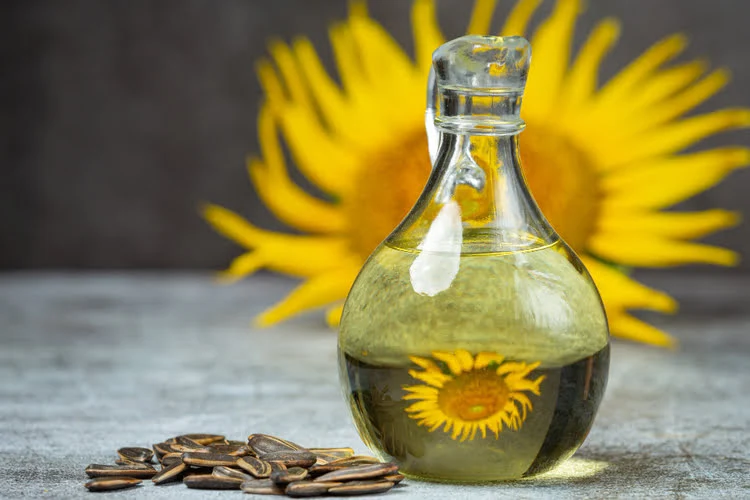
Sunflower oil is another popular vegetable oil that is made from sunflower seeds. This oil has a light yellow color and a mild, neutral taste. Its main advantage is its high content of polyunsaturated fatty acids, especially linoleic acid. This acid is an important source of omega-6 fatty acids, which are essential for maintaining healthy skin, brain and cardiovascular health. In addition, sunflower oil contains vitamin E, which is a powerful antioxidant.
Sunflower oil is one of the most versatile vegetable oils. It can be used for almost any type of cooking, from frying and stewing to baking and stir-frying. Thanks to its neutral flavor, it does not overpower the natural flavor of foods, making it an excellent choice for a variety of culinary experiments. Sunflower oil is also widely used in baking for bread, rolls and other baked goods. In addition to cooking, it can be used for cosmetic purposes, moisturizing and softening the skin and strengthening hair.
Coconut oil
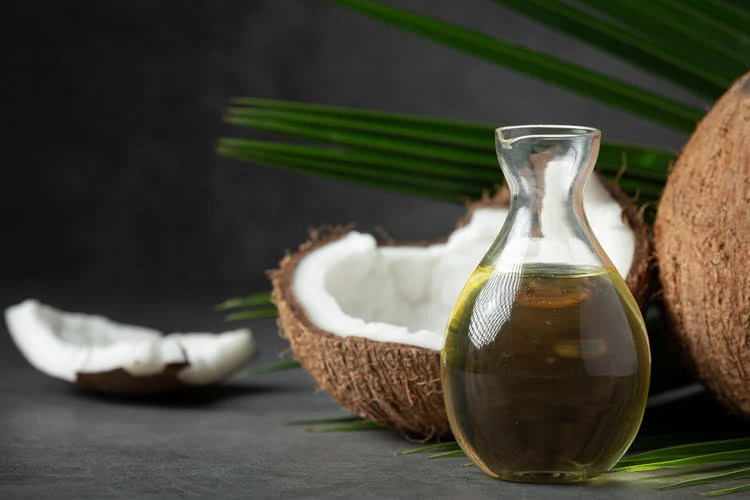
Coconut oil is an exotic vegetable oil extracted from the pulp of coconuts. It has the unique aroma and flavor of coconut, making it a popular ingredient in a variety of culinary recipes and cosmetic products. Coconut oil has a firm texture at low temperatures, but it quickly becomes liquid when heated. It contains saturated fatty acids that promote healthy skin and hair.
Coconut oil has many uses. In cooking, it is used for frying, baking, and making desserts. Its delicate coconut flavor adds an exotic note to dishes. Coconut oil is also often used in vegan and raw food recipes as an alternative to animal fats. In addition, this oil is great for skin and hair care. It can be used as a natural moisturizer, improving skin texture and elasticity. It is also used for massage and as an ingredient in homemade scrubs and hair masks.
Walnut oil
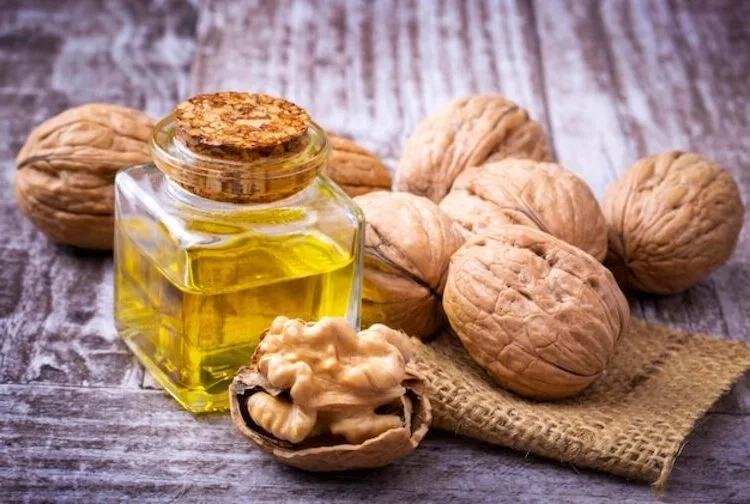
Walnut oil is a natural vegetable oil extracted from walnuts. It has a rich nutty aroma and a distinctive flavor. This oil is rich in polyunsaturated fatty acids such as alpha-linolenic acid, which is a form of omega-3 fatty acids. Omega-3 fatty acids are known for their beneficial effects on heart and brain health. Walnut oil also contains antioxidants, vitamins and minerals, making it beneficial for overall health.
Walnut oil has an intense nutty flavor and aroma, making it an excellent ingredient for a variety of dishes. It can be used in salad dressings, sauces, baked goods and desserts. It can also be added to omelets and porridge to give them a rich flavor. In addition to cooking, walnut oil can be used for cosmetic purposes. It moisturizes and softens the skin and also strengthens the hair. Eating this oil regularly can help maintain heart health and improve overall health due to its nutritional properties.
Avocado oil
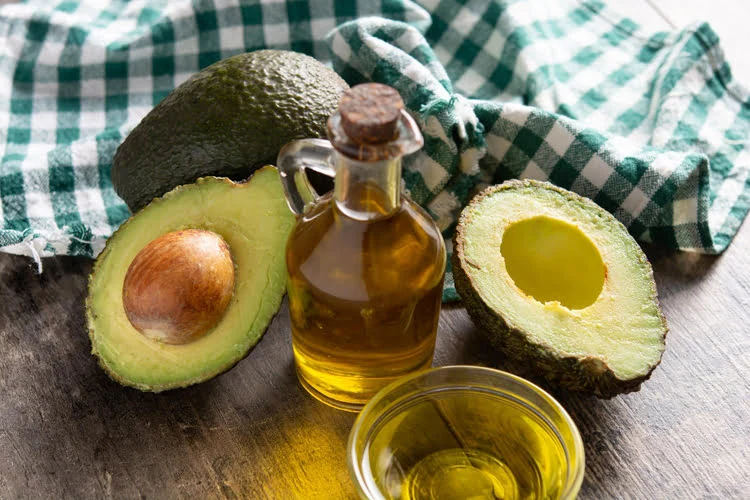
Avocado oil is a natural vegetable oil obtained from the pulp of ripe avocados. It has a rich green color and a unique mild taste with a slight nutty note. Avocado oil contains monounsaturated fatty acids, vitamin E and beta-carotene, making it beneficial for skin and immune system health. The rich composition of this oil helps to strengthen hair and nails.
Avocado oil is an important component of a healthy diet and skin care regimen. In cooking, it is used to create salad dressings, marinades, sauces and even grilling. Its unique flavor and intense aroma make it a great addition to many dishes. Due to its high content of monounsaturated fatty acids, avocado oil helps lower “bad” cholesterol and supports heart health. It can also be used for skin and hair care. Avocado oil is great for moisturizing and nourishing the skin, making it soft and supple. It also strengthens hair and prevents hair breakage.
Linseed oil
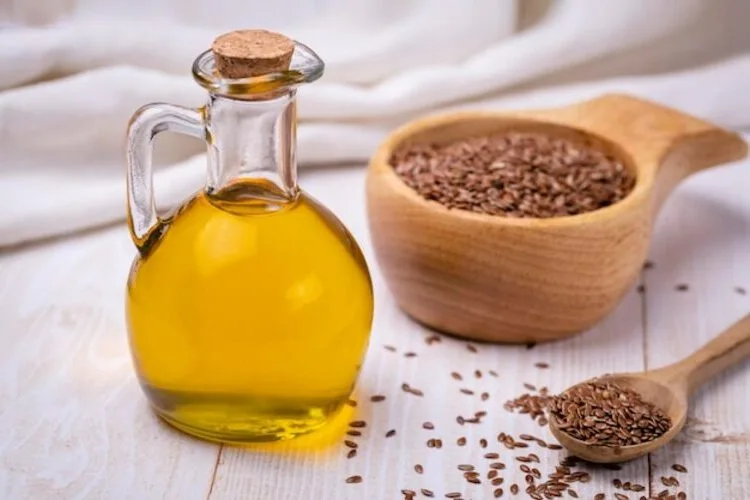
Flaxseed oil is a vegetable oil obtained from flax seeds. It has a light yellow color and a delicate, pleasant nutty aroma. Flaxseed oil is a rich source of alpha-linolenic acid, which is a form of omega-3 fatty acids. This acid has a number of beneficial health effects, including maintaining heart health and reducing inflammation in the body. In addition, flaxseed oil contains vitamin E and antioxidants.
Flaxseed oil has many uses in cooking and healthy eating. It is often used in salad dressings, making omega-3 rich smoothies and adding to cereal and yogurt. However, it is important to remember that flaxseed oil is extremely delicate to high temperatures, so it should not be subjected to frying or deep frying. Flaxseed oil can also be used to improve skin and hair health. It helps to moisturize and nourish the skin, making it softer and healthier. It can also be used to care for dry and brittle hair, giving it shine and strength.
Cedar oil
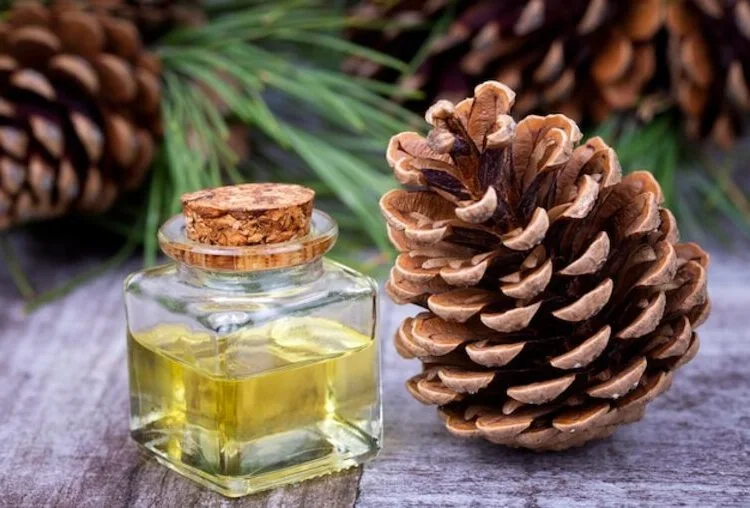
Cedar oil is a vegetable oil extracted from the seeds of Siberian cedar. It has a characteristic aroma and unique taste reminiscent of nuts and pine cones. This oil is rich in polyunsaturated fatty acids, vitamins and minerals, including vitamin E, vitamin PP and magnesium. Cedar oil is traditionally used in Russian cuisine and folk medicine.
Cedar oil has numerous culinary and medicinal uses. In cooking, it is used to prepare various dishes, including baked goods, salads and sauces. Its aroma and flavor give dishes a special character. In addition, cedar oil can be added to ice cream and desserts to give them a rich nutty flavor.
From a health perspective, cedar oil has antiseptic and anti-inflammatory properties. It can be used to treat various diseases and to strengthen the immune system. It is also useful for improving skin and hair health by moisturizing and nourishing them. When used regularly, it helps to improve the overall health of the body and maintain a healthy lifestyle.
Selection and use of vegetable oils
Let me share my tips, based on my background in nutrition and dietetics, on how to choose and utilize vegetable oils in your diet.
It’s important to remember that vegetable oils are not just ingredients for cooking, but key sources of fatty acids and vitamins needed to keep you healthy. When choosing an oil, consider its cooking characteristics and nutritional benefits.
Olive oil, with its mild flavor and high monounsaturated fatty acid content, is an excellent choice for making salad dressings and cooking at medium temperatures.
Rapeseed oil, also known as canola oil, is suitable for high heat frying and contains a rich source of omega-3 fatty acids.
Corn oil is an ideal choice for deep frying due to its high boiling point.
Sunflower oil is a versatile oil suitable for many different types of cooking.
You should also look for rare vegetable oils such as coconut oil, walnut oil, avocado oil and flaxseed oil. They will add variety to your diet and enrich it with nutrients.
Don’t forget that consuming vegetable oils in moderation helps you maintain a healthy lifestyle. They can also be used for skin and hair care, making you not only healthier but also more beautiful.
So, choose your oils wisely, cook delicious and healthy meals, and remember that vegetable oils are an essential part of your journey to a healthy and balanced diet.
Frequent question
There are many types of vegetable oils such as olive oil, coconut oil, sunflower oil, canola oil, peanut oil, linseed oil, etc.
Choosing the healthiest vegetable oil depends on the type of cooking, dietary needs and flavor preferences.
Olive oil is rich in monounsaturated fats, antioxidants and vitamins, making it beneficial for cardiovascular health.
Cold-pressed retains more nutrients, while refined oils often undergo additional processing and may have less flavor.
Vegetable oils with a high smoking point, such as peanut and sesame oils, are suitable for deep frying.
Coconut oil, olive oil and rosehip oil are popular for skin and hair care due to their moisturizing properties
Vegetable oils high in saturated fat, such as palm oil and coconut oil, should be consumed in a limited way due to their potential effects on cholesterol levels.

